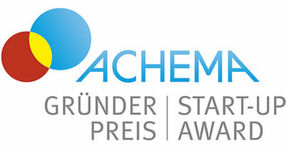Development and Commercialization of Antibacterial Drugs to Speed Up
The recently implemented GAIN Act is expected to lure companies back into R&D as well as attract new participants, finds Frost & Sullivan
Advertisement
The growing threat posed by multi-drug resistant gram-negative organisms (MDR-GNBs) is lending a sense of urgency to the development of antibacterial drugs worldwide. Upcoming regulatory reforms to lower R&D costs and provide incentives for new drug identification will create attractive opportunities for pharmaceutical manufacturers.
New analysis from Frost & Sullivan, A Product and Pipeline Analysis of the Antibacterial Drugs Market, finds that nearly 80 percent of drugs currently in the pipeline are from smaller pharmaceutical and biotech companies, of which half do not have any commercialized products in the market. GlaxoSmithKline, AstraZeneca and Merck & Co are the only three established pharmaceutical organizations in the antibacterial drug space.
“Thirty eight antibacterial drugs currently under development have the potential to address many, but not all, resistant bacteria,” said Frost & Sullivan Healthcare Senior Research Analyst Aiswariya Chidambaram. “Plazomicin and Eravacycline are two emerging compounds that have a broad-spectrum activity against most MDR-GNBs.”
Discovering new antibacterial drugs and identifying novel compounds that can successfully target bacteria is scientifically challenging. Given the high probability of failure and steep research and development (R&D) costs, big pharma companies that were once leaders are closing down their antibacterial research facilities.
Agencies such as the Food and Drug Administration (FDA) and the Infectious Diseases Society of America are deploying several initiatives to lure companies back into antibacterial R&D. The recently implemented Generating Antibiotic Incentives Now (GAIN) Act is expected to facilitate more efficient clinical studies and reduce barriers to market entry. In Europe, the Innovative Medicines Initiative (IMI) has launched two projects – Combatting Bacterial Resistance in Europe (COMBACTE) and TRANSLOCATION (molecular basis of the bacterial cell wall permeability) – that showcase an unprecedented partnership between industry, biotech organizations, and academia to fight antibiotic resistance.
“Further, collaborations in the form of public-private partnerships among industry, academia, investors and key opinion leaders will effectively address the vast unmet clinical and commercial needs in the antibacterial drugs market and quicken the journey towards commercialization,” concluded Chidambaram.






















































